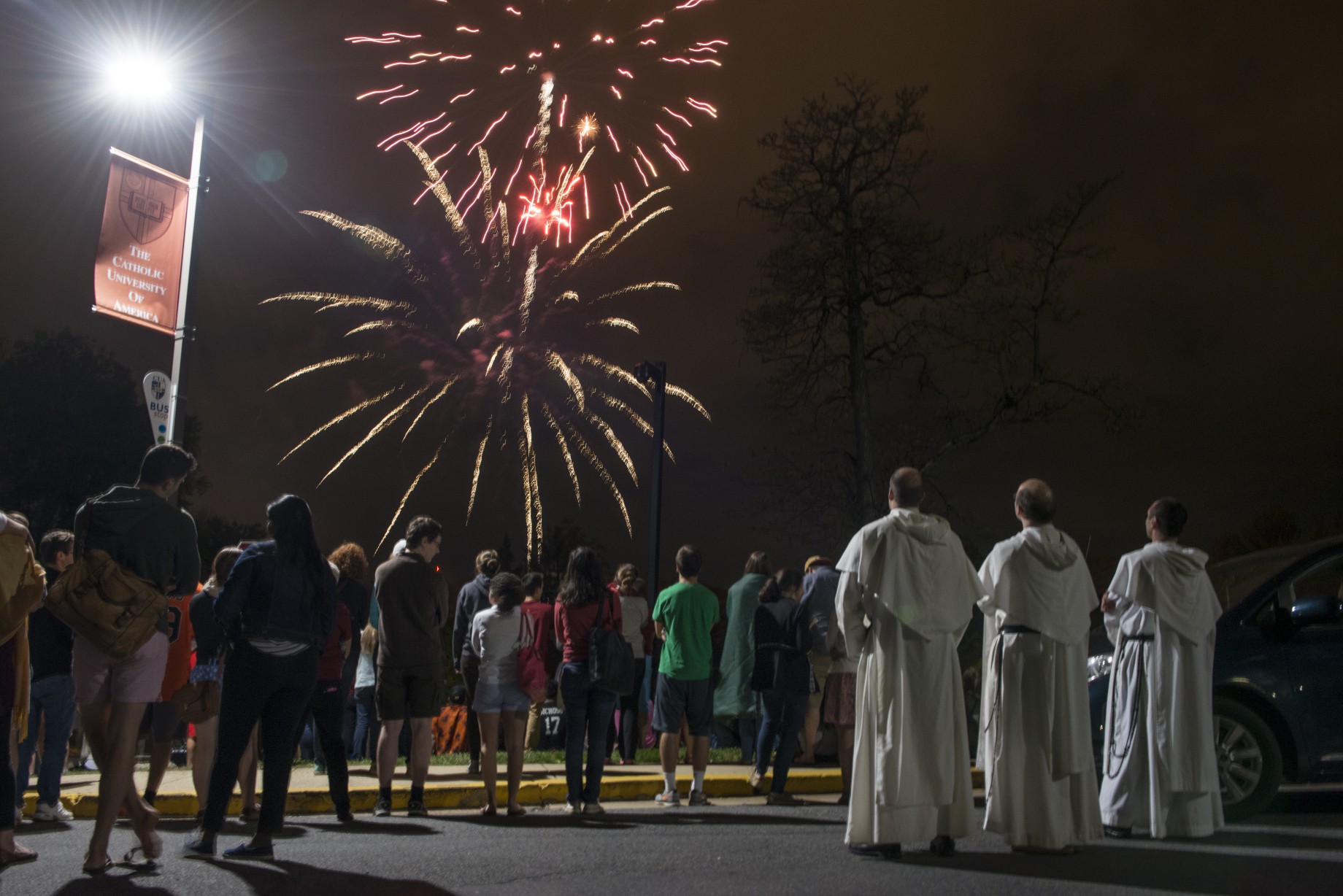-
General Fire Safety
General fire safety and emergency preparedness information is outlined in the Environmental Health & Safety Manual here. -
Hot Work Permits and Logs
The full Hot Works Program is located in the Environmental Health Safety and Risk Management manual here.
-
Fire Protection Inspection Testing and Maintenance
Annual Fire Alarm Testing usually occurs in May/June. Our Quarterly Sprinkler Inspections occur in February, May, August, and November.
Environmental Health and Safety, Baltimore Fire Protection and Equipment International, Facilities Maintenance Operations and our Department of Public Safety assist discreetly as possible in this endeavor.
As always this fundamental safety activity may only be accomplished with the support and participation of every aspect of our Campus Community.
Thank you for your cooperation and please direct any concerns to Environmental Health Safety and Risk Management at ext. 6112 or CUA-Environmental Health Safety and Risk Management@cua.edu.
-
Emergency Drills
Environmental Health and Safety, partnering with our Department of Public Safety, Facilities Maintenance and Operations, and other dedicated personnel- will continually conduct the "Emergency Evacuation (Fire) Drills." Our objective is to maintain compliance with all local DC and International ordinances. The university routinely performs these drill procedures as required by local, federal, and international mandates. Environmental Health and Safety in also in conjunction with Facilities Maintenance/Operations, Res-Life, Housing, and Faculty, help to ensure the university remains in compliance with both university policy, related safety requirements, regulations, and best practices.
This activity is a controlled function purposed to facilitate our approved Emergency Response Plan (ERP) and may entail various types of emergency responses including Evacuation, Shelter in Place, and Active Shooter Drills.
In addition to the use of fire alarm notification devices. The university utilizes other measures to get our emergency response messages out as well. You may receive instructions via designated staff, the university mass communication "Blue Light” system, emails, DC and Rave Alerts, digital message boards, phones, and even social media with oversight from Catholic administrators.
Once again, because drills are controlled activities, advanced notification will generally be limited on a need to know basis. Also from time to time there are occasions where local and federal officials may assist with particular operations.
As always we rely upon the support of our campus community and the Brookland area proper to conduct these exercises.
-
Facilities Safety Inspections
Members of the Department of Environmental Health and Safety and Facilities Maintenance are continually conducting campus Facility Safety Inspections for university academic and administrative halls. These procedures are not intended to be an exhaustive review of all possible unsafe conditions.
Members of the University community should promptly report unsafe conditions to Facilities, their Building Administrators, immediate supervisors, or to Environmental Health Safety and Risk Management as appropriate.
Our intent is to uphold compliance standards as noted in the Environmental Health and Safety Manual, Catholic University policy and “Best Practices.” All listed violations are subject to current DC Municipal Regulations, International Code Council, DOT, DOEE, EPA, the National Fire Protection Association, OSHA Standards, and applicable State/Local/Federal Standards.
-
Off-Campus Housing
Fire safety resources and guidance for students living off-campus is available here.

